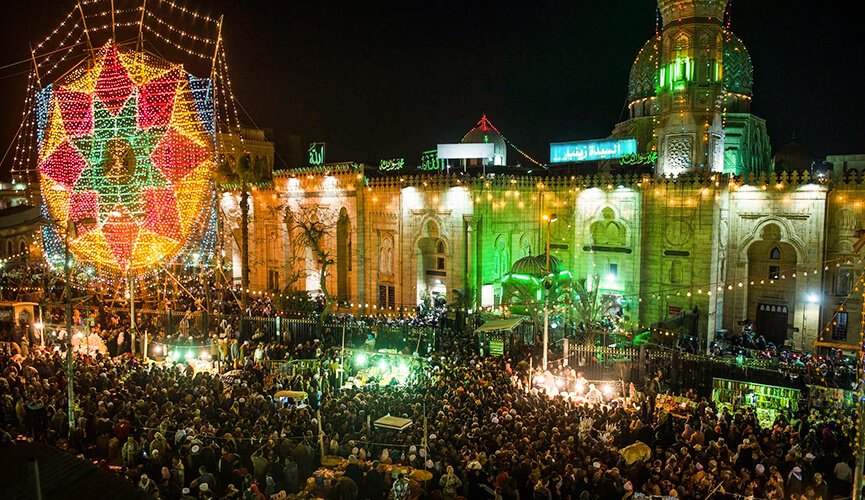Festivals in Egypt are a vibrant expression of the country’s culture, history, and religion. Festivals are essential to Egyptian life and honor many beliefs, habits, and practices. Egyptian holidays are the best way to see how Egypt’s old and current cultures mix uniquely.
Festivals are essential to Egyptian culture because they allow people to enjoy important events and religious holidays, build strong social bonds, and make memories with their family and friends that will last a lifetime. Festivals are also a place where people can share cultural information and work to keep cultural traditions alive.
Celebrating Life and Tradition: Top 12 Egypt’s Festivals
What are the main festivals in Egypt?
1. Ramadan
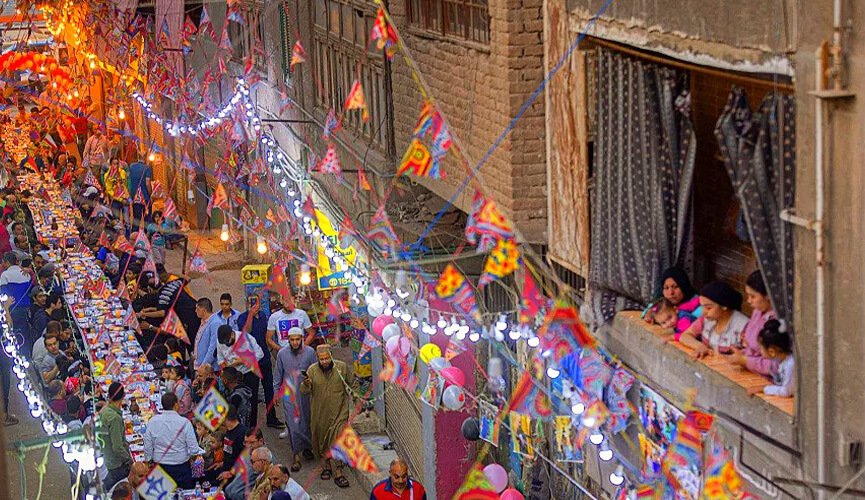
Millions of Muslims in Egypt enjoy the Ramadan Festival every year. During the whole month of Ramadan, people fast during the day and eat at night. During this time, families get together for special Ramadan meals called “iftar,” where they eat traditional foods like dates, soup, and bread. It’s also a time of giving and charity, with many Egyptians providing money to less wealthy people. At the end of the month, the Eid al-Fitr party takes place to mark the end of Ramadan.
2. Eid Al-Fitr
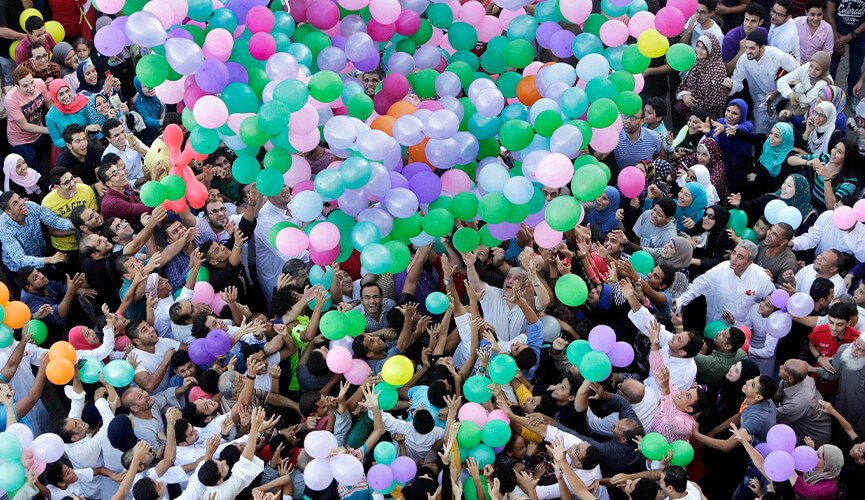
Muslims worldwide celebrate Eid al-Fitr, which lasts for three days. Special prayers and get-togethers with family and friends mark the occasion in Egypt. Traditional meals, such as kahk and maamoul, are sweet cakes filled with dates or nuts, are served. Each family also makes a special dish unique to their area or family traditions. During Eid al-Fitr, people wear their best clothes, fill their homes with lights and other holiday decorations, and share gifts with their loved ones.
3. Eid Al-Adha
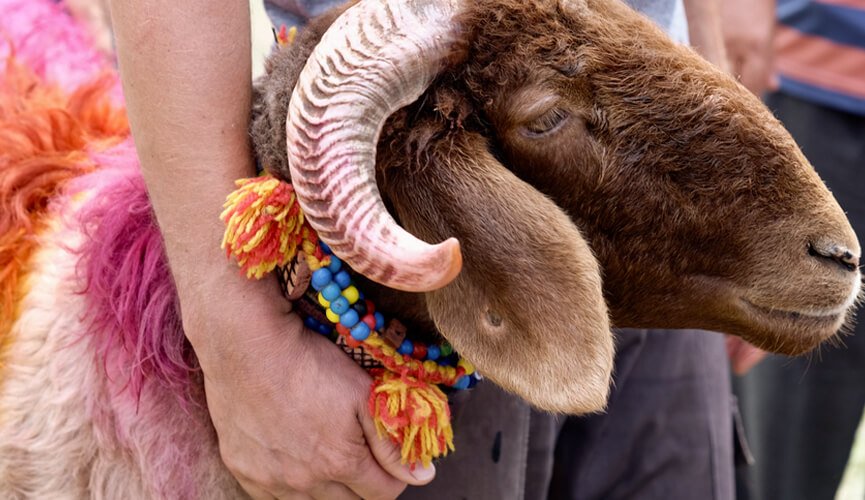
Eid al-Adha is another important holiday in Egypt; events last four days. This event remembers how the Prophet Ibrahim was ready to offer his son Ishmael as a way of obeying God. Muslims who can afford it sacrifice a sheep or other animal and give the meat to people who are in need. This holiday is also a time for getting together with family and friends, giving gifts, and eating traditional meals. In conclusion, holidays in Egypt are essential to the country’s rich cultural history and are marked yearly with energy and excitement.
4. Mawlid Al-Nabi Muhammad
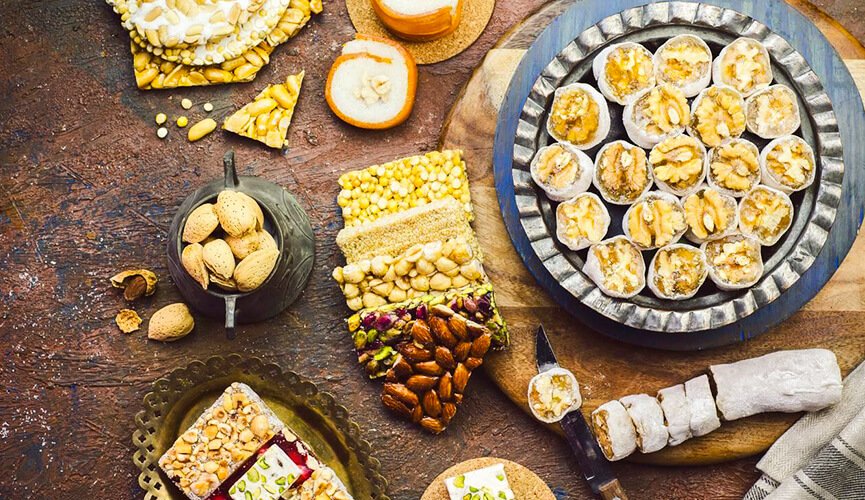
Egypt has an event called Mawlid Al-Nabi Muhammad to celebrate the birth of the Prophet Muhammad. Muslims from all over the country get together on this holiday to enjoy the life of their beloved leader through religious customs and eating. The holiday is held on the 12th day of the Islamic month Rabi al-Awwal, the third month of the year. During the holiday, people say special prayers and tell the story of the saint’s birth. The houses are lit with candles, and the streets are lit with bright lights.
5. Coptic Christmas Holiday
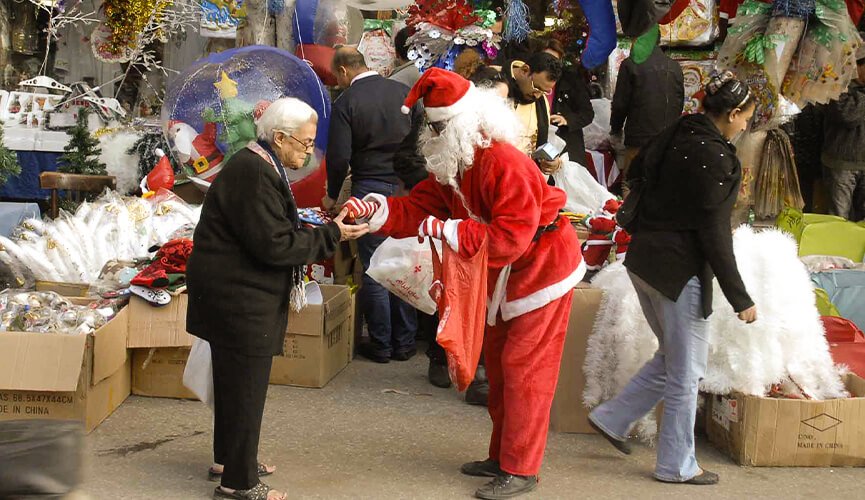
The Coptic Christmas holiday is another important holiday in Egypt. The Coptic Church enjoys Christmas for 13 days, starting on January 7th. The parties begin with the Christmas Eve service. Coptic Christians gather in their churches nationwide for a midnight mass. People share gifts with their loved ones and have the usual Christmas dinner as part of the traditions. People fill the streets with bright lights and holiday decorations and play and dance to traditional folk music.
6. Sham El-Nessim
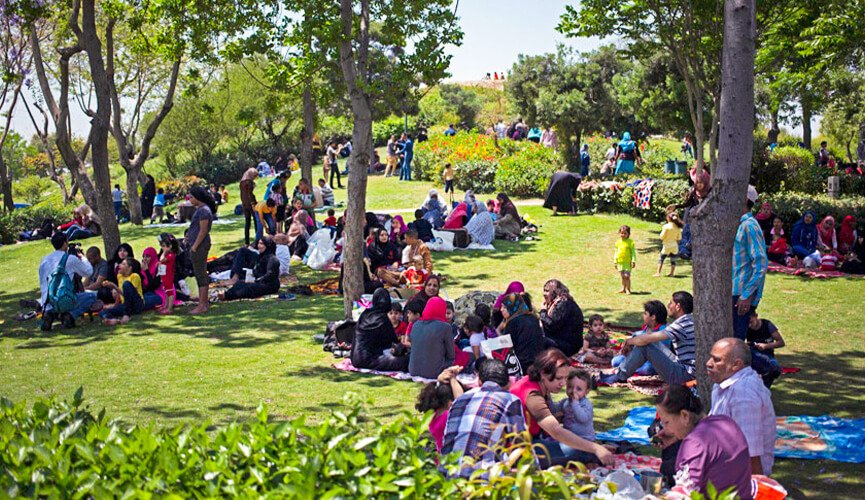
Sham El-Nessim is another old Egyptian holiday that is still celebrated today. It is marked on the Monday after Coptic Easter and marks the start of spring. Sham El-Nessim, as Easter in Egypt means “the smell of the breeze,” and picnics and family and friend parties outside mark the event. People eat native foods like Fesikh, a type of smoked fish, and eggs with different colors. Kids often have egg-rolling contests where they roll colored eggs down hills.
What are the Ancient Egyptian Festivals?
Festivals were an essential part of Ancient Egyptian life. They were celebrated for different reasons, such as religious, social, and cultural events. Most of the time, the ancient Egyptian festivals were held at certain times and ran for a few days. Each one had its rituals and routines.
7. Wafaa El-Nile
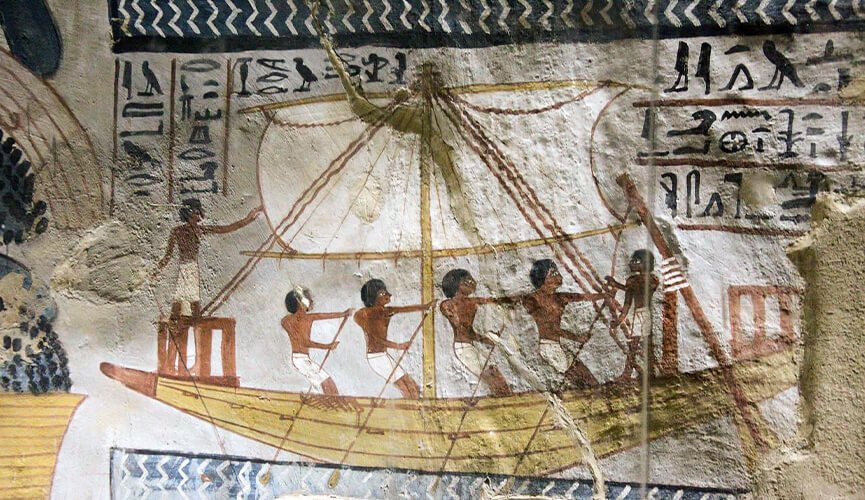
Wafaa El-Nile, as the name suggests, was dedicated to the Nile River and its annual flooding. The festival took place when the river was full and overflowed its banks, giving essential minerals and fertilizers to the land around it. The Egyptians thought the Nile was a gift from the gods, and the Wafaa El-Nile celebrations showed how much they respected it.
8. Abu Simbel Sun Festival
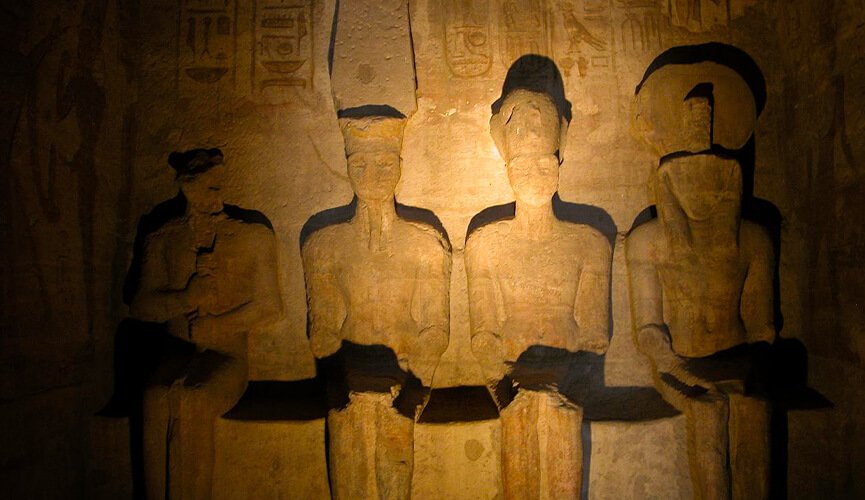
The Abu Simbel Festival is held every year on February 22 to honor Ramses II, a paramount ancient Egyptian ruler born on that date. The event is held at the temple of Abu Simbel in southern Egypt. It’s a big show that draws people from all over the world by the thousands. At the fair, a usual parade, musical acts, and a light show will light up the front of the building. The most exciting part of the event is when the sun’s rays shine through the temple’s inner room and light up the figure of Ramses II, giving the hall a warm, golden glow.
9. Opet Festival
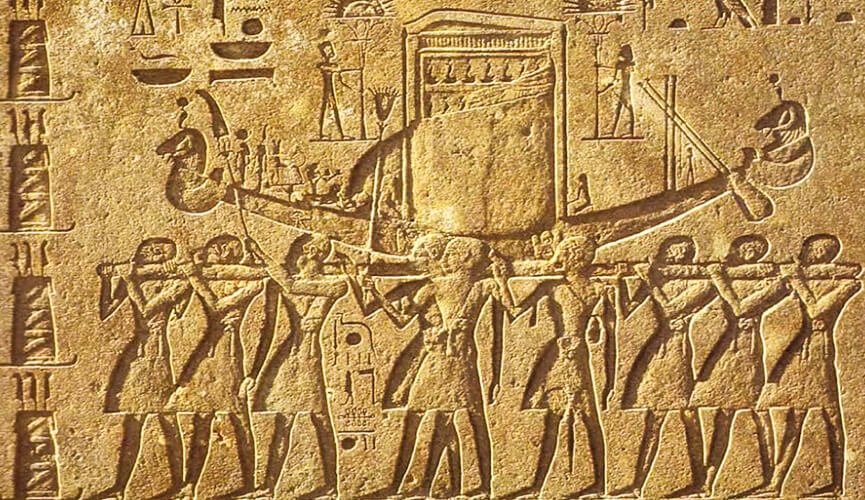
On the other hand, the Opet Festival is a three-week party held in Luxor. The holiday is held to remember how the Nile River floods every year. It was one of ancient Egypt’s oldest and most important religious events. Priests and lords bring images of the gods Amun, Mut, and Khonsu from the temple of Karnak to the temple of Luxor to start the holiday. The figures are then put in the inner center of the building, where people think they will come together and make a new life. The event is an exciting look at the culture and faith of ancient Egypt through its rites, processions, and gifts.
10. Sed Festival
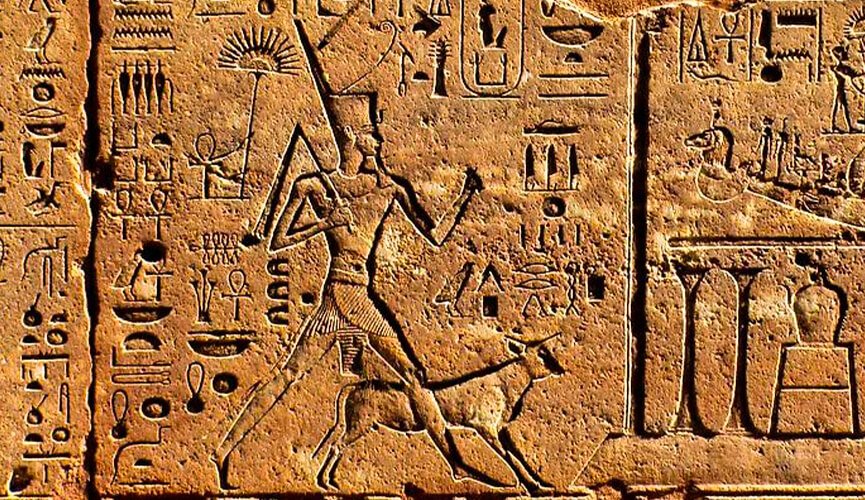
The Sed Festival was held after a king had been in charge for 30 years and showed that he could still rule well. It was a big party that lasted for several days, and the king had to undergo several physical tests to show his strength and health. During the event, the king also reaffirmed his promise to the gods and the people of Egypt.
11. Wepet-Renpet Festival
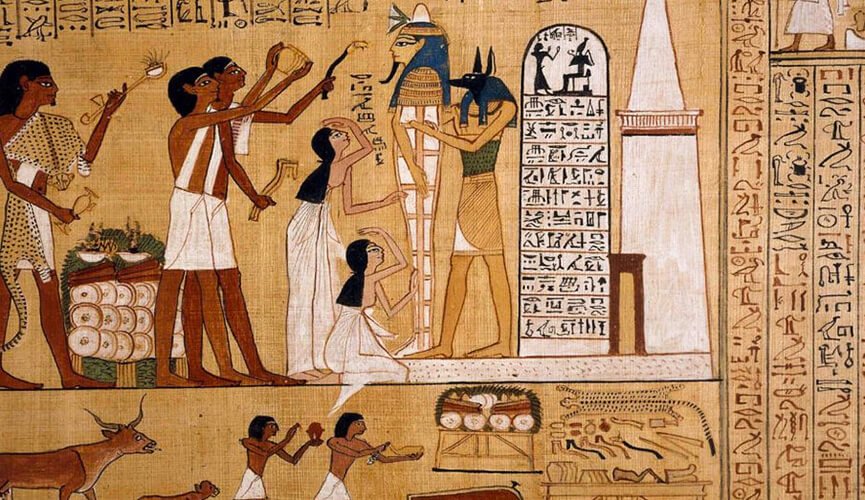
The Wepet-Renpet Festival, which marked the start of the calendar year, was another important event in ancient Egypt. The celebration was held in honor of the goddess Sothis, who was thought to be responsible for the floods of the Nile, which made farming possible. People ate, drank, and had fun at the event and gave each other gifts and presents.
Conclusion
festivals in Egypt are essential to spreading cultural understanding and variety. These yearly events let Locals and guests learn more about the country’s rich cultural history. Egypt has a long past that should be honored because it is one of the most remarkable cultures in the world. The events are a way to teach young people about the culture, music, art, and ideas of old Egypt.
It’s important to remember that Egypt’s many holidays are a rare chance to see a way of life that has stayed the same for hundreds of years. They allow you to learn about a different society than your own and open your mind. There’s something for everyone, from the bright colors and sounds of the Cairo International Film Festival to the traditional dances at the Abu Simbel Sun Festival.

